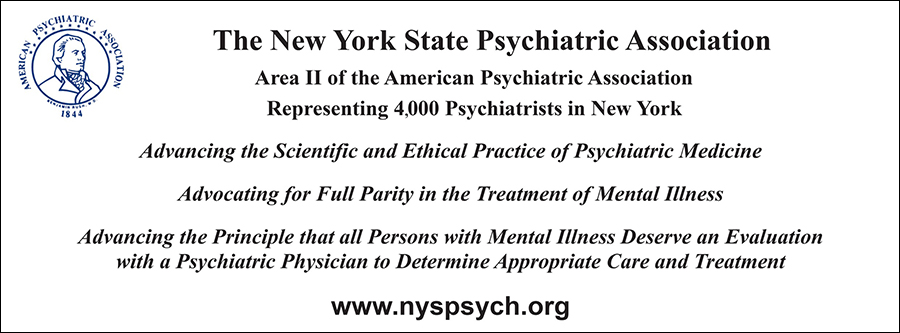In 2022, the United States Departments of Labor, Treasury and Health and Human Services issued a joint report entitled “2022 MHPAEA Report to Congress – Realizing Parity, Reducing Stigma, and Raising Awareness: Increasing Access to Mental Health and Substance Use Disorder Coverage.” The Report notes:

Rachel A. Fernbach, Esq.
For far too long, people with MH/SUD conditions and their loved ones have faced stigma, discrimination, and other barriers inside and outside of the health care system. These biases and discriminatory practices can often operate as an impediment to even seeking MH/SUD treatment in the first place. And once individuals attempt to seek care, they often find that treatment for their mental health condition or substance use disorder operates in a separate, and often very disparate, system than treatment for medical and surgical care, even under the same health coverage.1
The Report’s recommendations for strengthening the consumer protections already available under our federal parity laws include civil money penalties for federal parity violations, recovery of amounts lost by plan participants and beneficiaries in connection with wrongfully denied claims, and expansion of telehealth and remote health care services, among other initiatives. These recommendations make clear that the fight for full implementation and enforcement of our federal and state parity laws is still underway and that we continue to battle institutional stigma against those with mental health and substance use disorders.
Here in New York, our fight against stigma and its dangers is well underway. Earlier this year, the New York State Department of Financial Services (the “Department”) issued Insurance Circular Letter No. 1 (2023).2 A Circular Letter is a written communication issued to insurers doing business in the state to provide instructions, guidance, and clarification on topics of importance to the insurance industry. The publication of Circular Letter No. 1 (2023) represents the culmination of significant efforts by New York State Psychiatric Association (NYSPA) Central Office and Government Relations staff over the past 18 months.
Circular Letter No. 1 (2023) reminds New York insurers that they must accept and initiate processing of all health care claims submitted by psychiatrists pursuant to, and consistent with, the current version of CPT codes, reporting guidelines and conventions, including evaluation and management (E/M) claims.
NYSPA advocacy efforts leading to the issuance of this circular letter resulted from a significant uptick in utilization review efforts by New York carriers starting in 2021. It appears that the newly invigorated utilization review activities may have been related to the implementation of recent changes to documentation requirements for office and outpatient evaluation and management (E/M) codes. Effective January 1, 2021, CPT documentation requirements for office and outpatient E/M claims were significantly updated, establishing an entirely new framework for code selection and documentation. Following these changes, psychiatrists and their patients noted a significant increase in claim denials and down coding of claims, requests for documentation, pre-payment reviews and post-payment audits, which result in reduced reimbursement for psychiatrists and/or cost-shifting to patients where claims are submitted on an out of network basis.
In order to assist members who were experiencing significant claims processing issues, NYSPA staff began to contact the insurance carriers in question to challenge denials, records requests, and other ongoing review activities. NYSPA also reached out to the Department for further assistance in ensuring that carriers comply with CPT and to address aggressive utilization review activities that appeared to be focused solely on psychiatry services. NYSPA staff met several times with Department representatives to provide specific data regarding the number of psychiatrists (and their patients) who have been impacted by these issues, including regular and ongoing claim denials, pre-payment review and post-payment audits.
If an insurer’s claim processing and payment procedures fail to comport with the codes, guidelines, and conventions of CPT, this may violate both the federal HIPAA statute and the federal parity law, the Mental Health Parity and Addiction Equity Act (“MHPAEA”). First, HIPAA and its implementing regulations require that all covered entities adopt HIPAA-compliant code sets, including CPT. Second, if utilization review is being imposed solely on claims submitted by behavioral health providers, this also may be a violation of MHPAEA, which requires that any nonquantitative treatment limitation (NQTL) imposed on behavioral health benefits be comparable to and applied no more stringently than an NQTL imposed on non-behavioral benefits under the same plan.
The following are examples of ongoing claims-related challenges reported by New York psychiatrists:
- Denials in connection with documentation of time spent providing psychotherapy
- Denials for failure to identify the mode of transmission by which telehealth was rendered
- Denials for failure to document “patient progress and response to treatment” even when clearly documented in several sections of the note. There is no requirement that patient progress or response to treatment be listed under a separate heading.
- Denials claiming that only one CPT code should be used (i.e., non-medical psychotherapy codes such as 90832, 90834 and 90837) and refusing to recognize “medication-management” codes
- Consistent and routine denials, with no specific feedback or information, other than:
-
- “Insufficient documentation”
- “The documentation does not support the service billed”
- “Benefits for this service are denied. The documentation we requested from you was received, however we have been unable to confirm the service was rendered as billed.”
Circular Letter No. 1 (2023) provides a summary of the new office and outpatient E/M documentation requirements and how they are to be implemented in connection with claims for psychiatry services. The Circular letter clearly states that “when processing office and other outpatient E/M codes, issuers must do so consistently, with the criteria that became effective January 1, 2021.” Finally, Circular Letter No. 1 (2023) confirms that insurers must utilize the most recent version of CPT when reviewing, processing and approving payment for all claims, including claims submitted by psychiatrists.
It is clear that the issuance of Circular Letter No. 1 (2023) was urgently needed to ensure that insurers and health plans adopt the new E/M documentation standards and immediately cease any disparate evaluation of claims submitted by psychiatrists.
During this budget season, Governor Kathy Hochul and the New York Legislature are also considering additional tools in the FY 2024 state budget that would expand access to care for those with mental health and substance use disorders, establish important network adequacy standards for insurers and health plans and create a private right of action under the state parity laws. If enacted, the ability for individuals to file a parity action would establish an important level of accountability mirroring the federal private right of action that already exists under MHPAEA.
The focus on mental health has never been greater as New York State and the nation contend with a mental health crisis compounded by the effects of the COVID-19 pandemic. We hope that Circular Letter No. 1 (2023), along with the current budget proposals, will serve as powerful new tools to push back on aggressive utilization review activities by insurers and to improve the lives of patients and others impacted stigma.
Rachel A. Fernbach is the Executive Director and General Counsel of the New York State Psychiatric Association (NYSPA).
Footnotes







